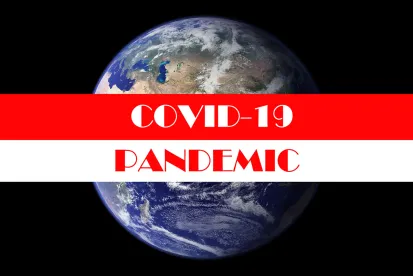The strength of a patent, the property right given to an inventor that allows him to exclude others from his invention, is a constant topic of debate in the United States, particularly for patents on pharmaceuticals. During the past decade, prescription drug prices have risen dramatically, prompting some to propose limits on the strength of drug patents. (See the 2016 outcry over the pricing of Gilead’s Sovaldi treatment for hepatitis as a case in point.)
For example, the FDA recently released a proposed rule that would promote the circumvention of U.S. patent rules by allowing the importation of some prescription drugs from Canada at prices lower than those available in the United States. (Importation of Prescription Drugs, FDA Proposed Rule, December 2019.) Some proposals would force companies to make their drugs accessible cheaply, either through government-imposed price controls or through mandatory licensing of patents.
COVID-19 Alters the Trajectory
Enter the COVID-19 worldwide emergency. The pendulum has swung sharply to the side of open collaboration between scientists and inventors. Governments and agencies around the world are discussing and implementing measures to allow for the quick and easy spread of scientific knowledge and ideas that may help with the diagnosis, treatment and prevention of COVID-19. Canada, Germany, France and Israel all have considered or enacted emergency legislation to allow for the suspension of patent rights, either across the board or directed to specific drugs and devices. The World Health Organization (WHO) has endorsed a proposal by the Costa Rican government to create a patent pool into which countries, companies and universities would need to deposit their IP and allow for reasonable access.
In the United States, a proposed bill would deprive owners of patent rights for patents directed to treating or preventing COVID-19 until the emergency is over, and then would add 10 years of patent term to the end of these patents. (Bill for Facilitating Innovation to Fight Coronavirus Act).
Potential March-In Rights
The United States has potential “march-in” rights under the Bayh-Dole Act of 1980 for patents directed to inventions for which the government contributed funding, which would require a patentee to grant a license to a patent, and if the patentee refuses, the government may grant a license. March-in rights are available only when four conditions are met, including that “health and safety needs are not being reasonably satisfied.” According to a paper published by the National Institute of Standards and Technology (NIST) in 2019, the National Institutes of Health (NIH) has been petitioned 12 times to initiate march-in proceedings; none of these has been successful. In a few cases, the NIH determined that high drug prices are not a basis for the enforcement of march-in rights.
However, in this time of pandemic, would the NIH agree that the conditions to enforce march-in rights are met? Certainly, the government never exercised march-in rights for HIV patents, even in the face of intense pressure and lobbying by activist groups to do so. (But see the government’s recent foray into the HIV-patent fight with its November 2019 suit against Gilead, the manufacturer of anti-HIV treatment Truvada, alleging that Truvada infringes on government-owned patents.) The use of march-in rights to aid in the development of COVID-19 treatments or vaccines has not yet been proposed.
Reason over Rights?
Using march-in rights to severely weaken patent rights would be a tremendous step for the government to take and would set a dangerous precedent. But it seems like such drastic action may not be needed. Now, instead of seeing resistance to sharing within the pharmaceutical industry, we have seen generosity and cooperation with patent rights and a general spirit to share ideas and information to hasten the end of the worldwide pandemic.
Recent examples include:
-
The National Institutes of Health (NIH) has created a partnership with the U.S. Food and Drug Agency (FDA), the European Medicines Agency (EMA), and 16 leading pharmaceutical companies, including Merck, AbbVie, Johnson & Johnson and Pfizer, “to develop an international strategy for a coordinated research response to the COVID-19 pandemic.” The partnership, called Accelerating COVID-19 Therapeutic Interventions and Vaccines (ACTIV), does not specifically discuss intellectual property rights, but establishes among other cooperative efforts “a centralized process and repository for harmonizing and sharing methods and evaluating models.”
-
Companies and universities, including Intel and the Innovative Genomics Institute of UC Berkeley and UCSF, have signed on to the Open COVID Pledge, which provides a license that “make[s] our intellectual property available free of charge for use in ending the COVID-19 pandemic and minimizing the impact of the disease.”
-
Medtronic released the design of a ventilator with the hope to “increase global production of ventilator solutions for the fight against COVID-19.”
-
Universities including Harvard, Stanford and Yale, have joined the COVID-19 Technology Access Framework, which provides “royalty free licenses … for the purpose of making and distributing products to prevent, diagnose and treat the COVID-19 pandemic…”
How long will this spirit of cooperation last? This unprecedented cooperation and sharing of ideas is expected to help lead to a quick end to the COVID-19 pandemic. After that, we will have to wait to see which way the IP rights and collaboration pendulum swings.


 />i
/>i
